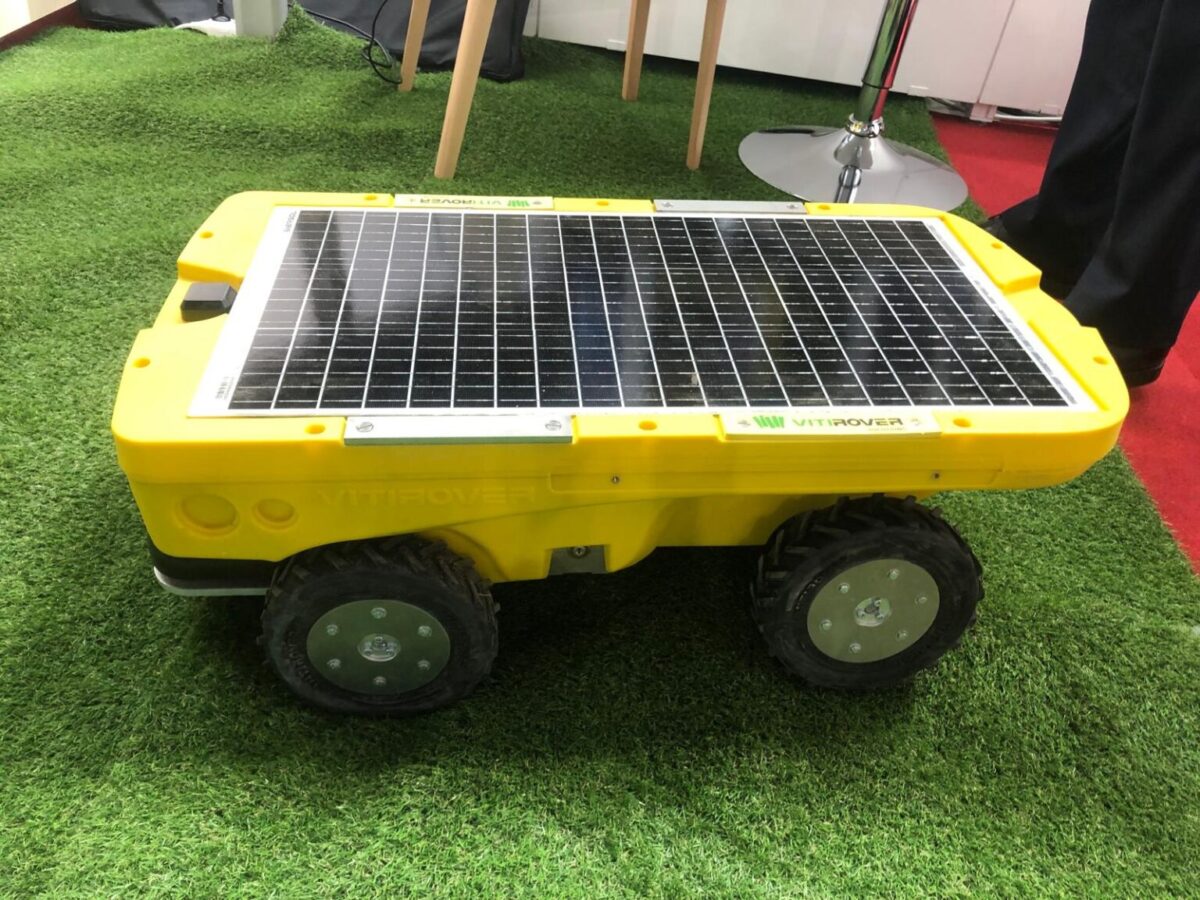From pv magazine France
Vitirover's “all-terrain garden robot” is moving up a gear. The new generation of the French company's lawnmower robot will go into series production in July, a company representatives told pv magazine France at the Intersolar trade fair currently taking place in Munich.
To accelerate commercial development the company is also raising €2 million ($2.14 million) from business angels and venture capital funds. Vitirover employs a dozen people, mainly in R&D. Production is outsourced to the site of the former Ford factory in Blanquefort, north of Bordeaux. The industrial line will be able to produce up to 100 robots a month, given that the company currently has around a hundred in operation. With the exception of the solar panel, all components (from the patented chassis to the motor) are produced in France or Switzerland.
Initially designed for vineyard maintenance, Vitirover's robot found applications in orchards and then in industrial sites with high densities of sensitive obstacles, such as solar power plants and high-voltage transformers.
The robot navigates itself autonomously and connected using an integrated GPS. It can be remotely controlled manually if required, thanks to a joystick function and cameras. It is designed to mow areas of up to one hectare (in around ten days) so that the grass does not exceed a height of 15 centimeters. The integrated solar panel provides six hours' autonomy, and the battery, 16 hours. The robot can be recharged at a grid-connected charging station or connected directly to solar panels — at photovoltaic sites, for example.
The robot with charging station is sold at “just under €10,000”. It can also be rented with a maintenance package on request. It is also possible to entrust your “herd” of robots to a “digital shepherd,” who will take charge of all fleet-related operations.
Vitirover also sells its robots to research centers and universities for studies in (among other things) AI, machine learning, the Internet of Things, geolocation, autonomous vehicles and web and SaaS platforms. These models are then accompanied by a development card that provides access to Vitirover technology.
This content is protected by copyright and may not be reused. If you want to cooperate with us and would like to reuse some of our content, please contact: editors@pv-magazine.com.




By submitting this form you agree to pv magazine using your data for the purposes of publishing your comment.
Your personal data will only be disclosed or otherwise transmitted to third parties for the purposes of spam filtering or if this is necessary for technical maintenance of the website. Any other transfer to third parties will not take place unless this is justified on the basis of applicable data protection regulations or if pv magazine is legally obliged to do so.
You may revoke this consent at any time with effect for the future, in which case your personal data will be deleted immediately. Otherwise, your data will be deleted if pv magazine has processed your request or the purpose of data storage is fulfilled.
Further information on data privacy can be found in our Data Protection Policy.